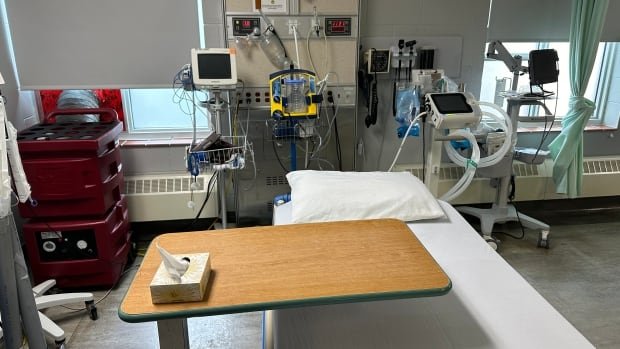The emergency department at a small hospital in the northern Ontario community of Richard’s Landing had to close for 24 hours last Thursday because a locum, or visiting physician assigned to cover shifts, had a family emergency, and there was no replacement available.
The facility is part of the North Shore Health Network, which runs three small hospitals along the north shore of Georgian Bay, between Sudbury and Sault Ste. Marie.
The network’s president and CEO, Tim Vine, told CBC News the emergency room at the hospital in Blind River almost had to shut down last week because a visiting doctor had a flight cancelled.
“Thankfully the local provider could extend a shift until a replacement arrived later in the afternoon, but it was kind of touch and go last week,” Vine said.
“Each of those examples really points to how fragile we are as a small rural northern provider when it comes to locums being able to get here.”
Vine said the network’s three emergency departments are 60 per cent dependent on locums – doctors who travel regularly from other communities, and sometimes other provinces, to pick up shifts.
He said that dependence on doctors from outside the community makes the three small hospitals especially vulnerable if a physician can’t make it for some last-minute reason.
“In no way do we want to blame the physicians for this,” he said.
“You know, life happens and we have to be understanding of those things. It’s just, you know, without that local provider pool, it really means that it’s difficult to fill last-minute shifts.”
Vine said that vulnerability is leading to burnout for physicians already based in rural communities.
He adds that the problems have become worse since the COVID-19 pandemic.
“It doesn’t look like it’s going to let up anytime soon, which is really unfortunate for everybody involved,” he said.
Vine said even if Ontario doubled the number of medical school seats today, it would take six years to see the benefits, before those doctors are trained.




